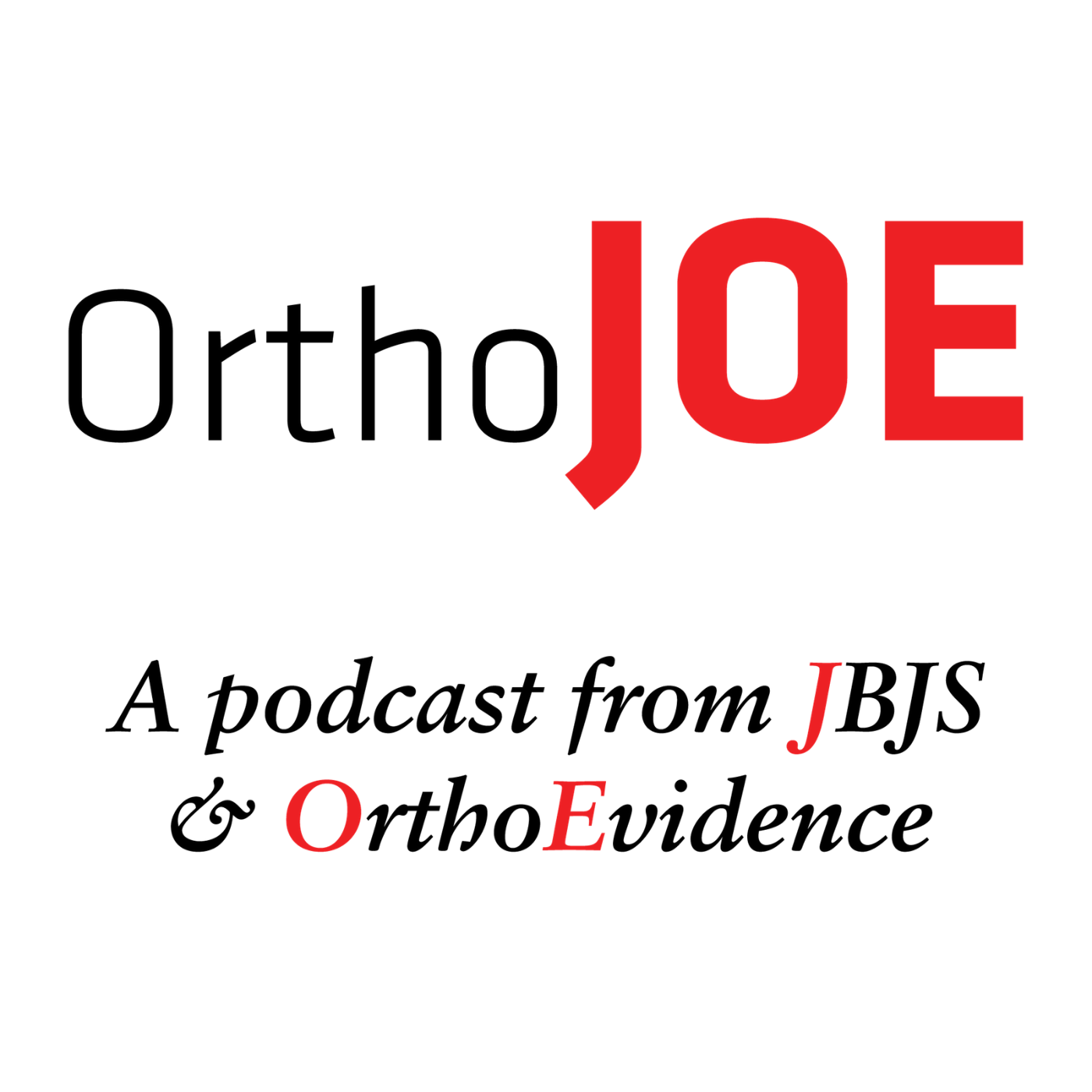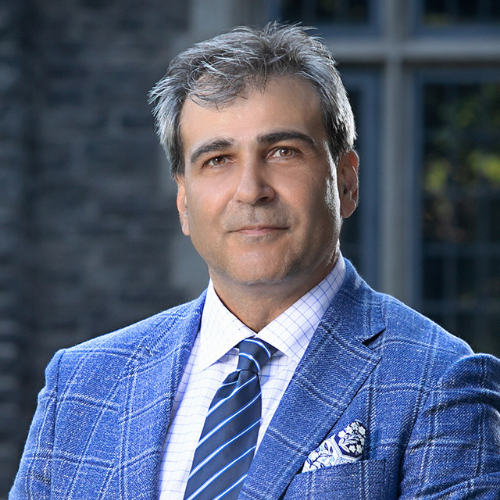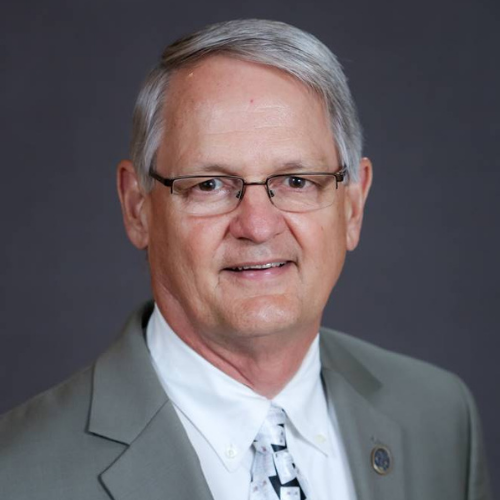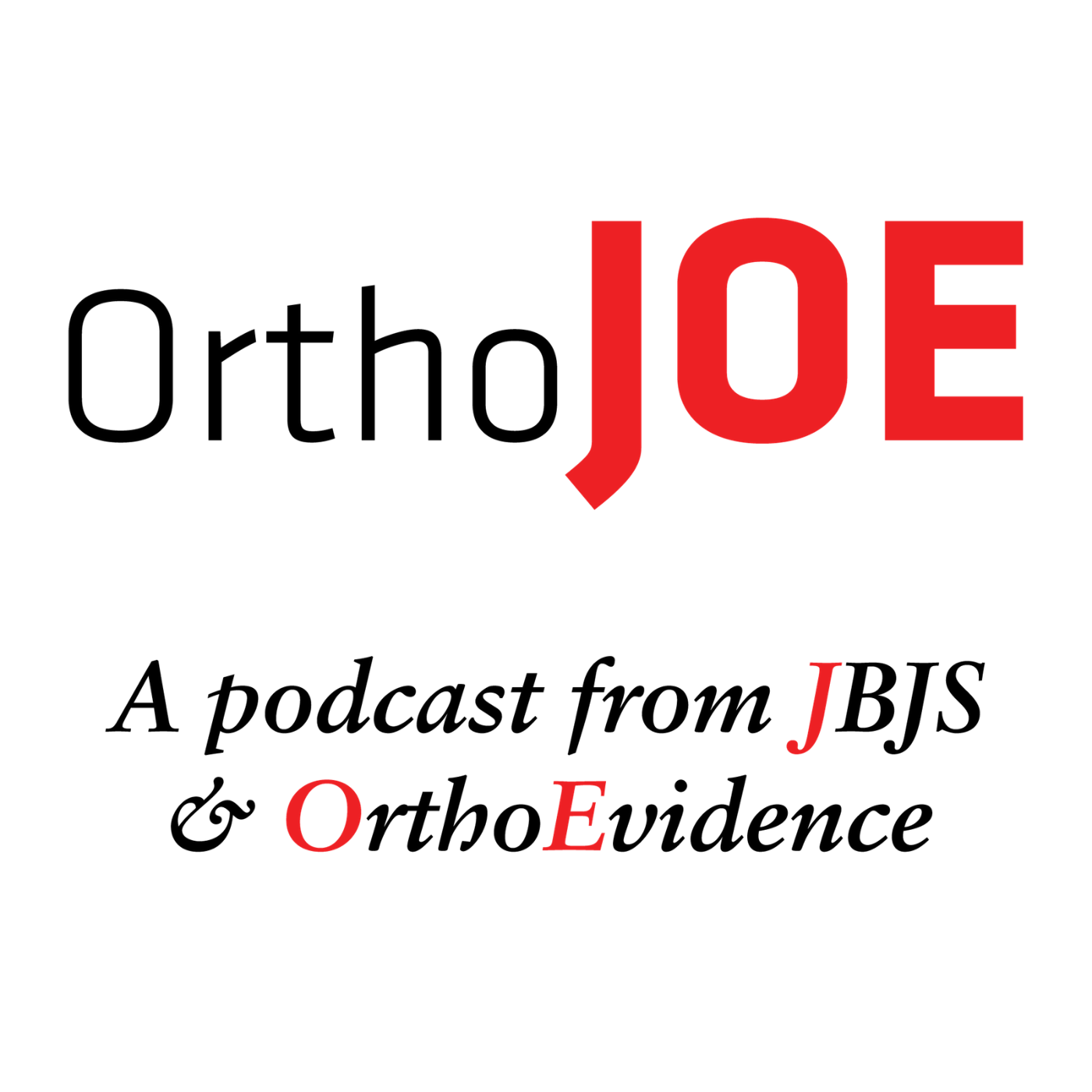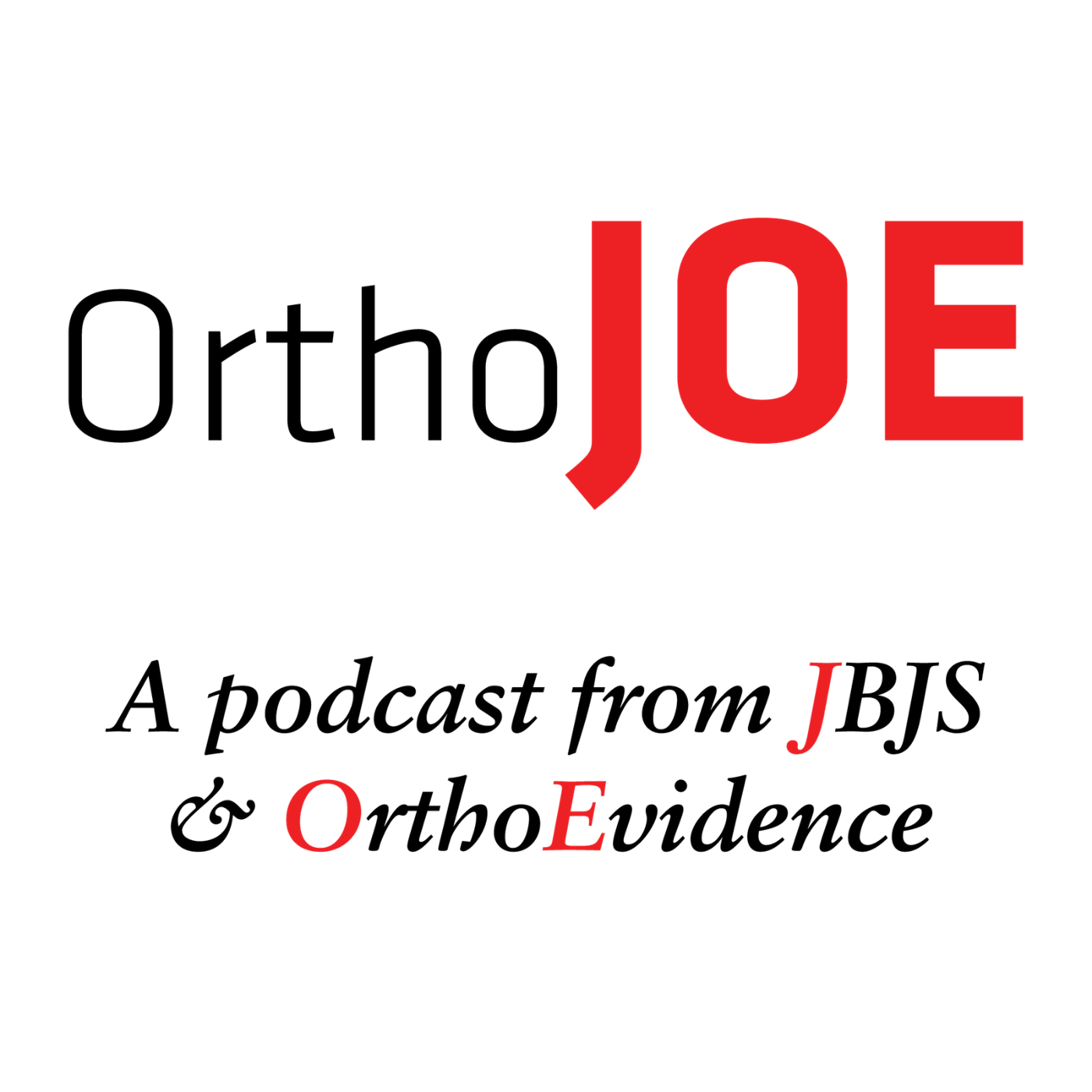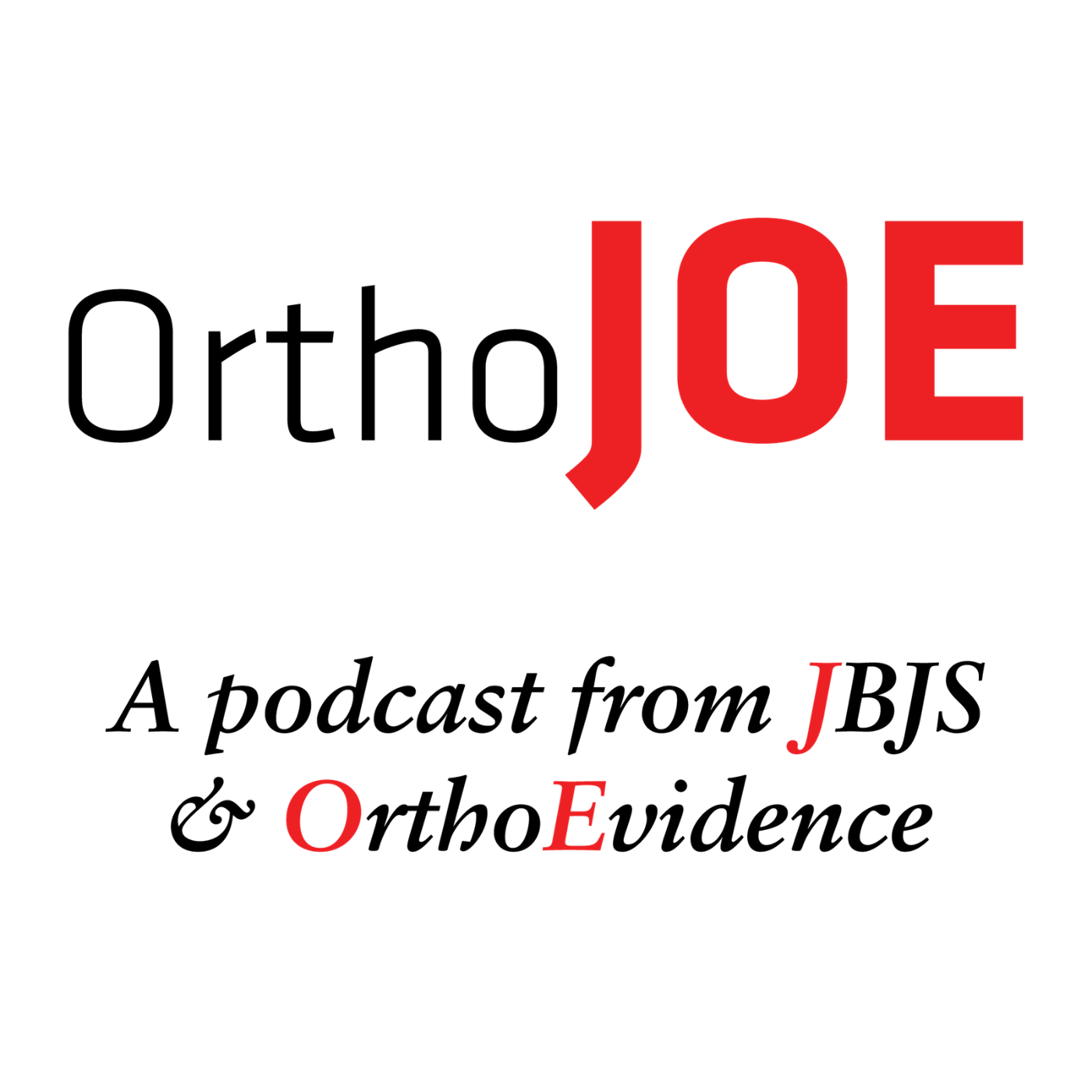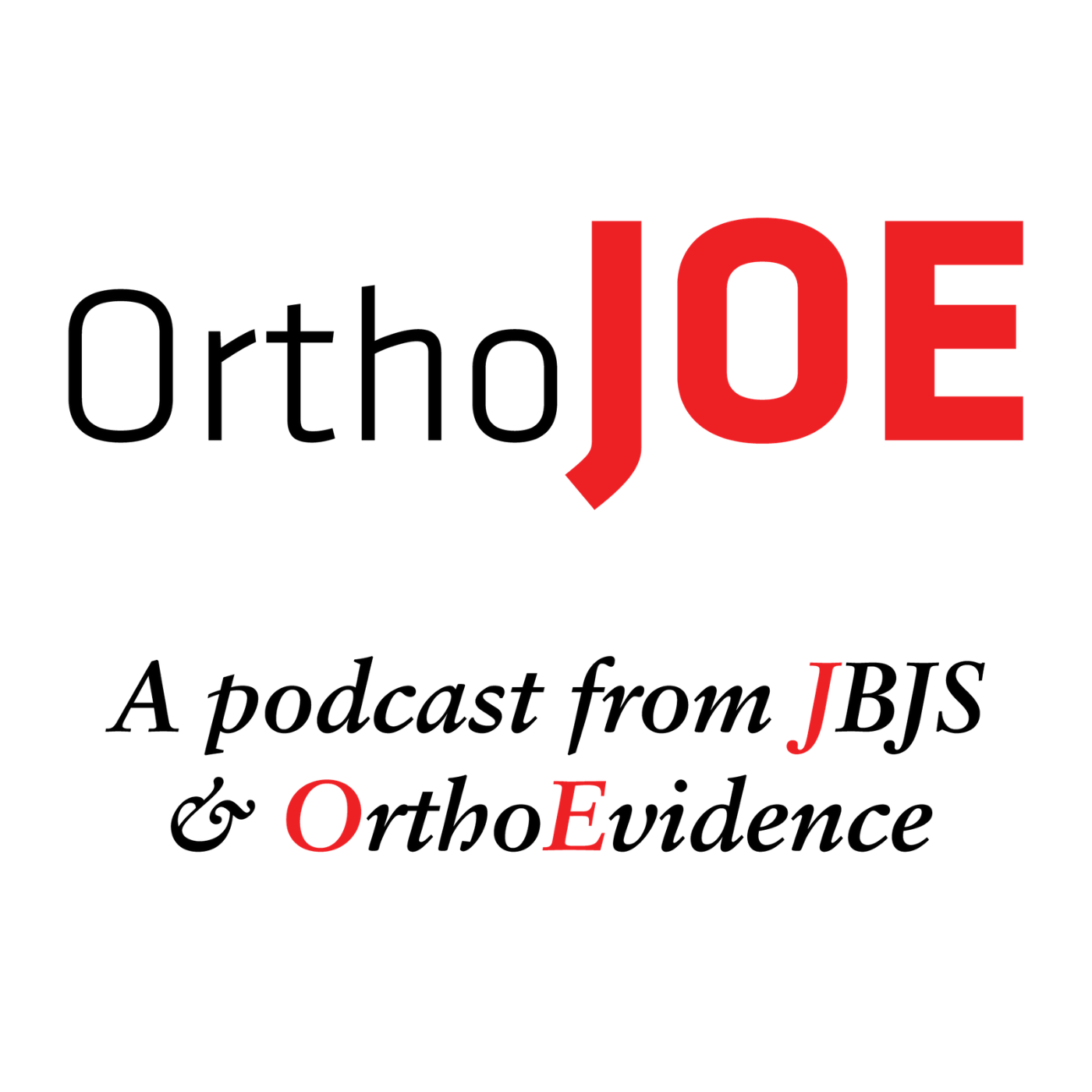Episode Transcript
[00:00:03] Speaker A: Welcome to JBJS Ortho Corps. Listen. As members of the Ortho community, residents, surgeons, educators, staff and patients share their stories about the experiences and people most important in their lives and the lessons they learned along the way. Orthocorps is an audio archive inspired by StoryCorps and independently organized by the Journal of Bone and Joint Surgery.
[00:00:29] Speaker B: Hi, this is Mark Swankowski talking with you from Albuquerque, where my colleagues and I are at the 20th Century Orthopedic association meeting.
And these two dear friends, these gentlemen have some recollections for their time with Dr. Charles Rockwood. So we have Dr. Danny Guy and we have Dr. Steve McCollum, both of whom trained under Dr. Rockwood, and they have some memories. So I'm going to start first with Dr. Guy. What would you like to say about Charlie Rockwood?
[00:01:01] Speaker C: Thanks, Mark. It's a real honor to be able to share a few tales and so much to share so little time. So we're not going to be able to even touch the breadth of things. But we were both, Steve and I, both fortunate to join the Rockwood family, if you would, when we were starting interns in San Antonio at the University of Texas in 1982. Dr. Rockwood, great family man with nine children, the first eight boys, and we'll.
[00:01:33] Speaker D: Come back to that.
[00:01:34] Speaker C: And they hung in there until they got that girl, number nine. He and his wife Patsy, were just lovely to the residents and really encouraged, actually a family environment, encouraged people that were married, actually really took care of the family. So it was a great start for us. And as far as his family goes, all of his boys were in the Boy Scouts. Most of them were Eagle Scouts. Dr. Rockwood's Eagle Scout project for all of them, I think was the Honeybee project that he had in his backyard.
But he loved his daughter the best, and we were just fortunate to be among that group in that time. So with that, I'll turn it over to Steve and tell us about what we started in 1982.
[00:02:15] Speaker E: So I have a few special memories.
Again, it was an honor to be chosen in this program.
I'd seen the Rockwood and Green textbook as a med student. I said, I think I need to go out there and do a rotation. And one thing led to another and I was lucky enough to be picked. We showed up there early. Sorry, late June.
And on July 1, we sat down and we walked into the room. You could have a pin drop. Dr. Rockwood had a whole stack of index cards and it became known as the I am the chief talk and every indiscretion that had ever happened in that program, he had a card about it. Say, you will not do this. You will not do this. You will wear a coat and tie. And any consult you get, requests, no matter how crazy it seems, you will go there, you'll say yes, and you'll do that consult. And you will not have.
[00:03:00] Speaker C: You'll always get one reply, thank you very much.
[00:03:04] Speaker E: Yeah, that's exactly right.
And then that night on July 1st, we would go to his house and we had a party where he would always serve enchiladas in the backyard. And about 8:45, he'd ring this big bell and he goes, it's time to go home. It's time to go home. Get out of here. And if you were still there at 9 o' clock in the backyard, he'd turn on the sprinklers, say, get out of here. Go, get out of here.
And then one of my other favorite memories to other memories, one was when we were senior residents, he would always get the senior residents together about every two months. And we would come into his office, he'd close the door and look around the corner, make sure no one was there, then open his credenza and pull out Tres Generaciones Tequila. And he'd line up six Styrofoam cups for the six residents, pour us each a shot. We'd always go in there thinking, now there's some problems in this program. We're going to work them out, we're going to tell Rockwood all about them. And by the time we were on the second shot, everything was perfect, Everything was fine. We didn't know anybody. We left happy as a lard. And we realized later we didn't really get much done, did we?
[00:04:04] Speaker C: Not at all.
[00:04:06] Speaker B: Interpersonal genius.
[00:04:07] Speaker C: Charlie was, well, you know, if you were on the shoulder service with him, which was ortho red, and he was in San Antonio about half the year, the rest of the time he's traveling. But he always operated on Mondays and his clinic was Monday afternoon. So you'd operate on Monday morning. Then you go to what was called consultants clinic, which is all the private patients, and you do that clinic. And then you go to the hospital and round on who you operate in the morning, and then everybody go to his office, where we were first indoctrinated into the tequila tradition. And so everybody, and I'm talking medical students, residents, fellows, all in his office, everybody got a shot at tequila. You didn't talk about any orthopedics. You were just lord of the manor, or lady of the manor, as it was.
And he just made you feel welcome.
And it's such a bonding experience. I wish. It was mandatory for all residency training programs. The chair drank with his residents once a week.
[00:05:11] Speaker D: One shot. We're not trying. We didn't say drunk. We said drink.
[00:05:15] Speaker C: But he really took care of us on that.
[00:05:17] Speaker D: And he was a superb surgeon.
[00:05:20] Speaker E: Yes.
[00:05:20] Speaker D: And when you operated with him, depending on the level of the case, determined who did it.
[00:05:25] Speaker C: But if you're doing a total shoulder.
[00:05:26] Speaker D: You were a chief resident, and you would always start the case, and he'd be at your shoulder. And as long as you were getting somewhere, you had all the tools in your hand, and he had the sucker tip. But at some point, all the tools would be in his hands because he had some place to be and you were on the sucker tip.
[00:05:44] Speaker C: But his patients loved it, especially when.
[00:05:46] Speaker E: It came to the cut, the humeral head cut. By that time, he had this all in his hand. But the other thing I remember about being on his service was you could not BS him. He could smell BS a mile away. And if you had all these admissions from this trauma service we were on, and if you were trying to hide something, he had this sixth sense. We've all had our issues where we were trying to hide an X ray or two. He goes, wait a minute. Stop. Go back.
Tell me more about this case. And you said, oh, my God, here it comes. Here it comes. He sniffed me out. He knew better.
[00:06:16] Speaker C: Dave Green in his eulogy. We were all at his funeral about a year ago or so. And at his eulogy, Dave Green said that he had a unique way of managing angry patients. So I'll tell you one small anecdote that one of our fellow residents, Dan Nelson, is in. Our group of residents like to tell that Rockwood did a total shoulder and then went out of town.
And a couple days later, the patient, after discharge, came back and was infected. So they waited on Dr. Rockwood to come back to do something. And the patient was a rancher from West Texas and getting angrier and angrier. Where's my doctor? Where's my doctor? And finally, Dr. Rockwood came back, and they take him up into the room, and the patient's clearly angry. And Dr. Rockwood just stands when he comes indoors, kind of stands on the door for men can see the guy's angry. And he says, well, God damn it, I guess we're just gonna have to pay. Put a ring in your nose and beat you.
And the patient just looked at him and started laughing. And that was it. It was over. And it just, you know, he really had a way of charming people.
And there's so many stories again that we don't have enough time. I didn't want to switch to his academy legacy because he came up as he started the program San Antonio. His mentor in San Antonio was A member of 20th Century, John Hinchey, who was an academy president as well.
In fact, Dr. Hinchey's grandson.
[00:07:45] Speaker D: John Hinchey.
[00:07:47] Speaker C: Is it the third or the second?
[00:07:48] Speaker E: I'm not sure I'm going to say the second.
[00:07:49] Speaker C: He's an orthopedic surgeon in San Antonio now. Does joints really fine. Young guy. Dr. Hinchey was very tough on us as residents, you know, took no quarter. Mayo Clinic trained, or as we like.
[00:08:00] Speaker D: To refer to it in San Antonio.
[00:08:02] Speaker C: The Clinica de Mayo.
And.
[00:08:06] Speaker D: Dr. Hinchey was the force behind Dr. Rockwood's involvement, I think the Academy. He was the one that picked Dr. Rockwood to start the program in San Antonio and the force behind him becoming the treasurer of the academy and subsequent the president of the Academy. But something he did before that was he brought this group of orthopedic surgeons to San Antonio in the 70s, and one week they built what's now known as the Orange book. Andy Pollock, a member of 20th century, has been an editor of that and is very familiar with it. But in one week. And they would write all day long and dictate, or talk and dictate, and while they had dinner at night, they had secretaries that transcribed everything. And at night they would come back and review what they had done. And they produced it in one week. It's Care of the Sick and Injured. It was the first book for EMTs.
And at that time, people were transported by hearses, basically, if you got hurt, no ambulance service.
And it really changed emergency medical care in the United States. They got not a dime for it. The academy got everything. And I. And I'd like to say the reserve in the Academy, because it makes a pretty good sum every year. It's the book for EMTs. It came from Dr. Rockwood's initiative on that. And Steve talked about the other publications. Really marvelous.
[00:09:32] Speaker E: The first one I saw was a gray book, which was the Rockwood and Green. It was first published in 1974, and I hit med school in 1978. I remember looking at that book going, I might need to go out to San Antonio and just check this out. I don't know what I was thinking, because I was not AoA material. And by that time in 1982, that program was on ascendancy. And most of the guys, I think were AOA that got in. And by the grace of God, I made the cut somehow.
I do have one personal story with Dr. Rockwood. I remember two more stories. One, I remember doing a total shoulder with him when I was a senior resident. And Dr. Rockwood was holding the prosthesis into the humerus and I was banging away at the prosthesis and I was looking at the humeral shaft to make sure the process wasn't going to split it. And I hit Dr. Rockwood's thumb pretty hard with it with a mallet. And he danced around the OR and used about every foul language you could imagine.
And I'm thinking, okay, this could be. I don't know if I'm going to finish the residency or not. But up to now it had been a pretty good run.
Somehow he let me finish. So that was a. That was a pretty special day. Pretty special.
[00:10:40] Speaker C: Jesse Galie. Because Doug Rockwood did use some colorful words at times, and the most frequent was probably goddammit and Dele would come in the room and say, where's God damn it?
But to finish the story kind of about how he chose people, it was not so much really on your record. I mean, you had to get interviewed, you had to have decent grades and everything like that. But it's the Jesse Daly.
And when Jesse Daly came to interview and he trained, he did medical school, school in Galveston. And when he came to his interview, I just have to have this image. He arrives in blue jeans, cowboy boots and a leather jacket.
And the story goes that after the interview, Dr. Rockwood wrote one thing on his notepad about Jesse Dalee Stud, and he was it.
[00:11:36] Speaker E: And Dr. Rockwood had a unique ability to recruit and hire superb faculty around him. Dave Green, a highly accomplished hand surgeon, world famous, wrote the textbook, the Bible and hand surgery.
Who are some of the other faculty?
[00:11:58] Speaker C: Kay Wilkins.
[00:11:59] Speaker E: Kay Wilkins.
[00:11:59] Speaker C: Kay Wilkins.
Somebody that a lot of people may not know is a guy named Tom O'. Brien. Eugene Tom O' Brien was through the Air Force. And Dr. Rockwood would tell you he was the finest orthopedic surgeon in San Antonio. But he's a hand surgeon and you could call him anytime, a real soft spoken guy and also with nine children, and both of them practiced their faith. Dr. Rockwood, no matter where he traveled, went to Mass and always carried with him his personal pepper sauce and the.
[00:12:30] Speaker E: Jalapenos, cut jalapenos in a small Ziploc bag. You take them out at dinner, sprinkle them on the dinner. Never went anywhere without him.
[00:12:39] Speaker C: Well, actually, he was beloved by his residence.
[00:12:43] Speaker E: He was.
[00:12:43] Speaker C: He was incredibly fair and nice to us. If you called him at night, he happened to be on call, he'd say, well, what do you want to do with it?
[00:12:52] Speaker D: And you tell him. He said, just show me the X rays in the morning.
[00:12:55] Speaker C: And I mentioned today at our meeting about our Alamo Orthopedics. It's. And that's where he.
[00:13:03] Speaker D: He did the postgraduate training, if you would.
[00:13:05] Speaker C: And that we have a award that.
[00:13:08] Speaker D: He named called the Guajalote Award, which means turkey. And you were supposed to bring your absolute worst embarrassing case that you show no nobody. And he run all the spouses out. He closed the doors, and we'd already been having dinner and drinks. And you shared your failure.
And it was very competitive. And Steve and I are proud members of winning the trophy. Not at the same time or on the same patient, but it was a wonderful experience. And we go back for our Alamo meetings every year.
[00:13:44] Speaker E: And I will say one last thing.
I made lifelong friends that year, and Danny is one of those close friends. I can tell him anything. He knows all my skeletons. And we love each other. Our group is still. We're going to get together after this meeting and go up to Santa Fe, all of us working our residency.
[00:14:00] Speaker B: That's wonderful. For those of you who might be listening, you may not know that Dr. Guy was recently the president of the Academy. So there's a connection that goes all the way back to his training with Dr. Rockwood.
[00:14:12] Speaker C: And I can tell you the most surprised person that I was present Academy was Charles Rockwood.
But he was such a, you know, role model is just really not an adequate term for anybody that trained with him. And we bought him a pair of boots that has the Alamo logo that I think we paid $10,000 for those boots a long time ago. I mean, they're like.
And I hope he's resting peacefully in those boots even now. But I don't know.
[00:14:46] Speaker B: Yeah. Quite sure he's smiling down on us now and probably ready to chew on you guys a little bit. For past failures.
[00:14:54] Speaker E: One more story. I just remember Danny and I, about probably 10 years ago, there was a board of. There was a fall meeting for the Academy in San Antonio. And by that time, Dr. Rockwood's health was failing. And we made a special effort to go there to see Dr. Rockwood together. When we opened that. When he opened the door and he saw us this huge smile on his face. By this time, he was a little bit emaciated. And we took a selfie with him, and I had it framed, and I sent a picture of Danny and to me and to Dr. Rockwood until the day he died, that was on his mantle. And that just made me so happy that we could make him happy just going back to visit him.
[00:15:30] Speaker C: Yeah. So that picture, it was not really his mantle. It was like a dresser where this TV was over in his bedroom.
And I was there one day with Dave Green, and he goes, how'd y' all manage to get your picture over there that he has to look at you two every day with him? Dave Green lived right next door and saw him every day when he got sick.
[00:15:50] Speaker E: I still got that picture in my bathroom on my counter right there. Every day when I brush my teeth, I look over at him and say, all right, let's do this for him today.
[00:15:59] Speaker B: Well, it's a great, great story of unique friendship here and recalling a giant of the field who was just a wonderful human. And we all miss Dr. Rockwood very much. So thanks for sharing these memories, and it'll be really fun to share it with the rest of the world. Thank you, gentlemen.
[00:16:18] Speaker D: Thank you, Mark.
[00:16:18] Speaker E: Thank you.
